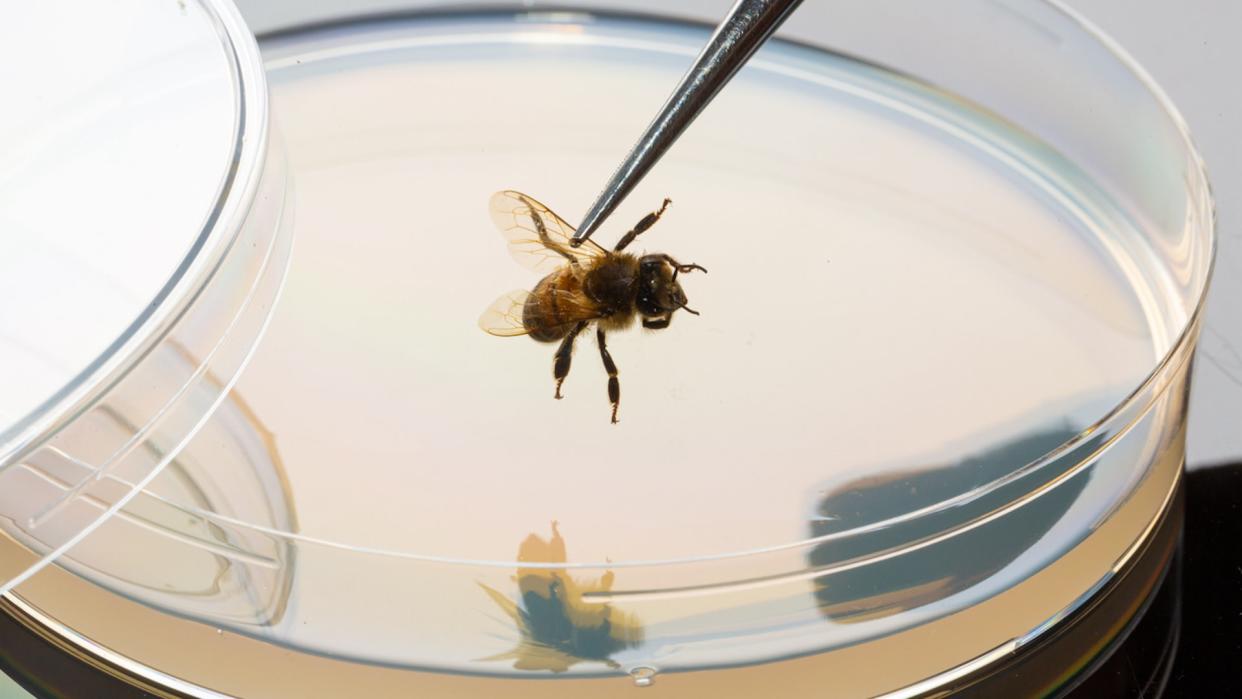Scientists develop edible antiviral treatment for crucial pollinator: 'The engineered algae boost the bee's immune system'

What if bees could get their vaccines in tasty treat form?
That's exactly what scientists at the USDA Agricultural Research Service have cooked up to help honey bees fight off deadly viruses. This edible breakthrough could be a game-changer for the tiny pollinators we rely on, as reported by Phys.org.
Honey bees help keep food on our tables, but viruses like the dreaded deformed wing virus (DWV) have been wiping out millions of colonies worldwide.
When pesky Varroa mites infect a colony with DWV, it spells bad news for the little buzzers, especially the babies. Unhealthy hives are also a big problem for beekeepers and our food supply. More than one-third of food crops globally are supported by pollinators like bees, according to the U.S. Department of Agriculture.
But now, there's hope on the horizon. According to research published in the journal npj Sustainable Agriculture, by mixing specially engineered blue-green algae into bee chow, scientists can fire up the bees' immune systems to fend off targeted viruses.
"We found that engineered algae diets suppressed DWV infection and improved survival in honey bees," said Vincent Ricigliano, research scientist at the ARS Honey Bee Laboratory in Baton Rouge, Louisiana. "When mixed into bee food, the engineered algae boost the bee's immune system to fight off the targeted virus."
Watch now: Ford executive reveals how the brand will meet customers 'where they are' with EV technology
Bonus: This algae is eco-friendly, pulling carbon dioxide out of the air as it grows.
The USDA team had previously explored algae as a potential pollen substitute to help keep bees well fed. Now they've taken it to the next level by turning the algae into an antiviral powerhouse that could tackle multiple bee viruses and pathogens.
It's a huge deal — medications for other bee ailments exist, but this would be the first treatment to combat the viral threat.
According to the research, nearly all colonies wrestle with DWV, but this superfood solution could be a lifeline, boosting colony survival and helping bees stay on their pollination A-game. That's great news for beekeepers and farmers. And since the algae mixes right into existing bee grub, beekeepers can easily dish it out to their hives.
The researchers have filed a patent and plan to adapt the technology to take on more viral foes of bees. While some regulatory hurdles remain, this innovative approach holds serious promise as a sustainable, scalable way to get our honey bees back to buzzing.
Join our free newsletter for weekly updates on the coolest innovations improving our lives and saving our planet.

